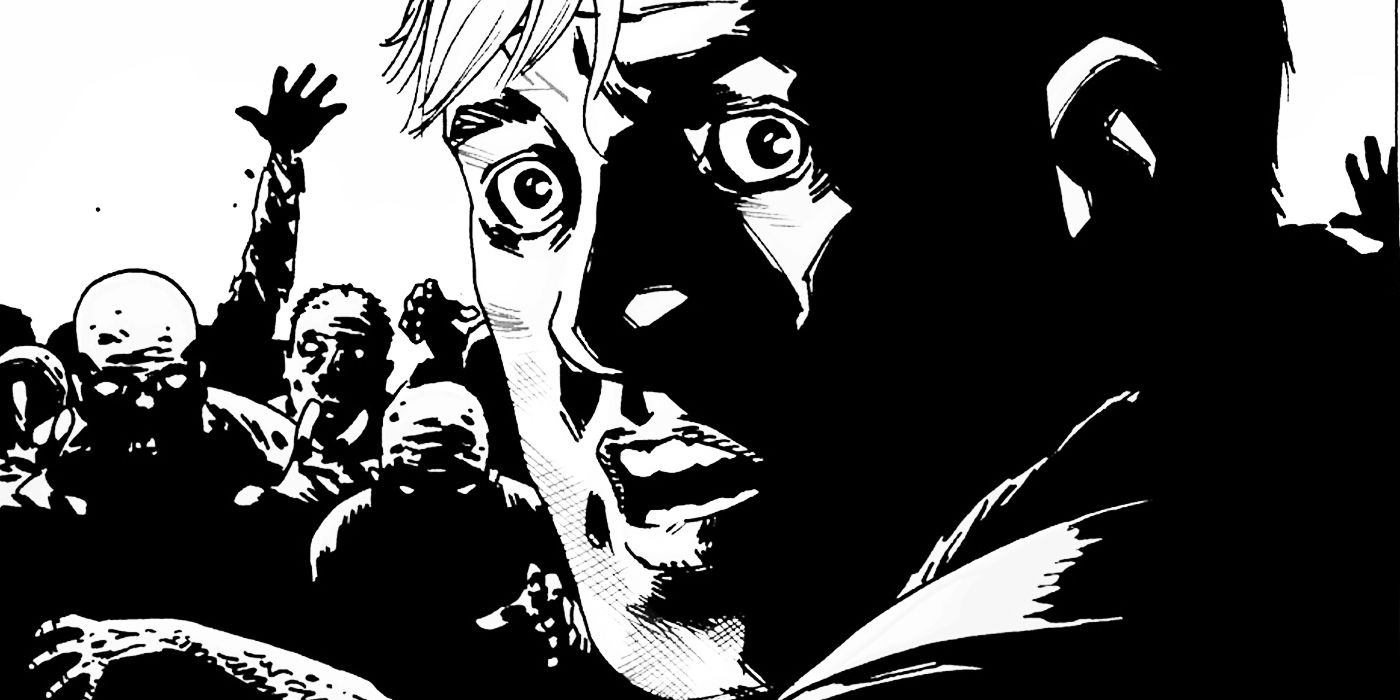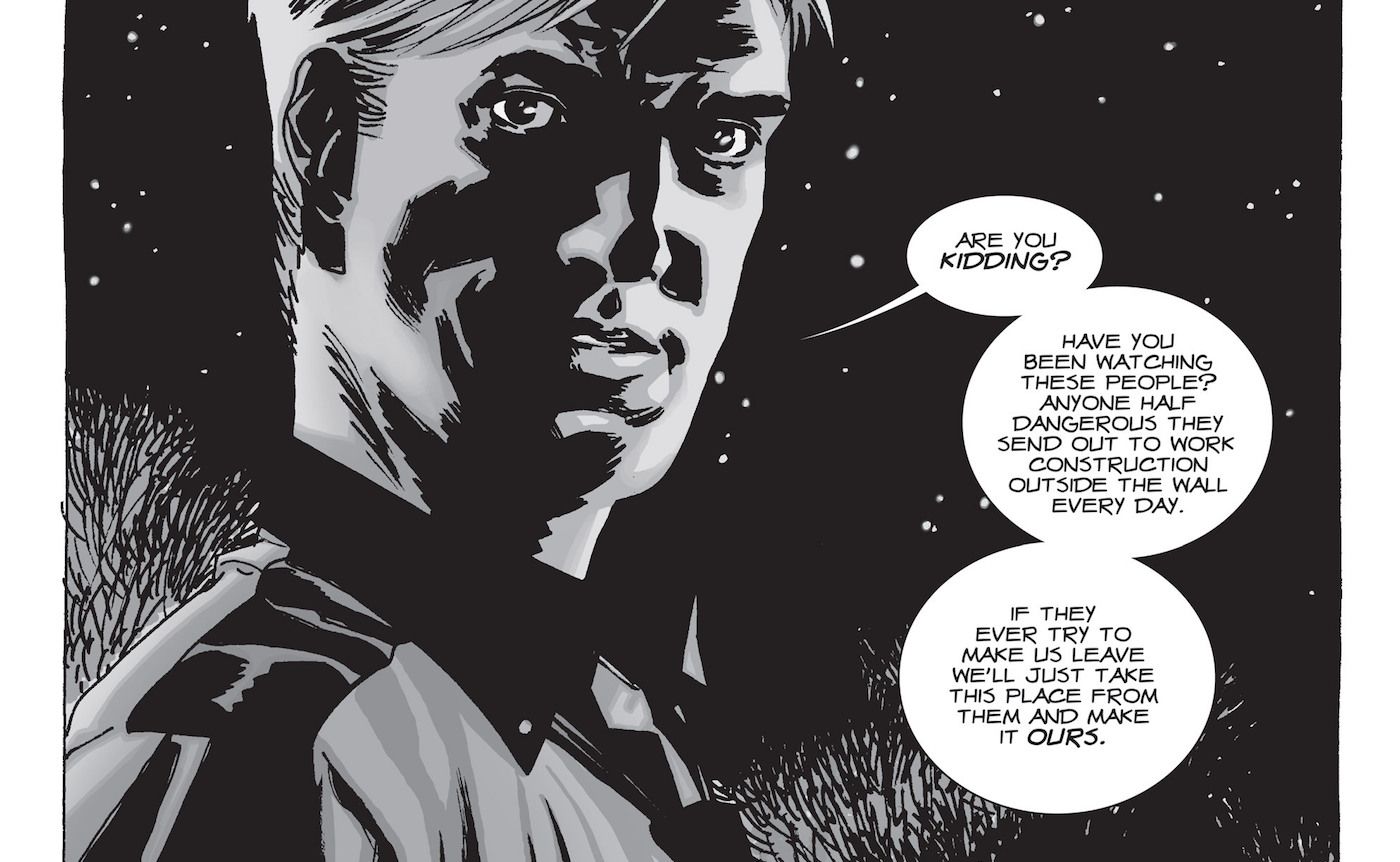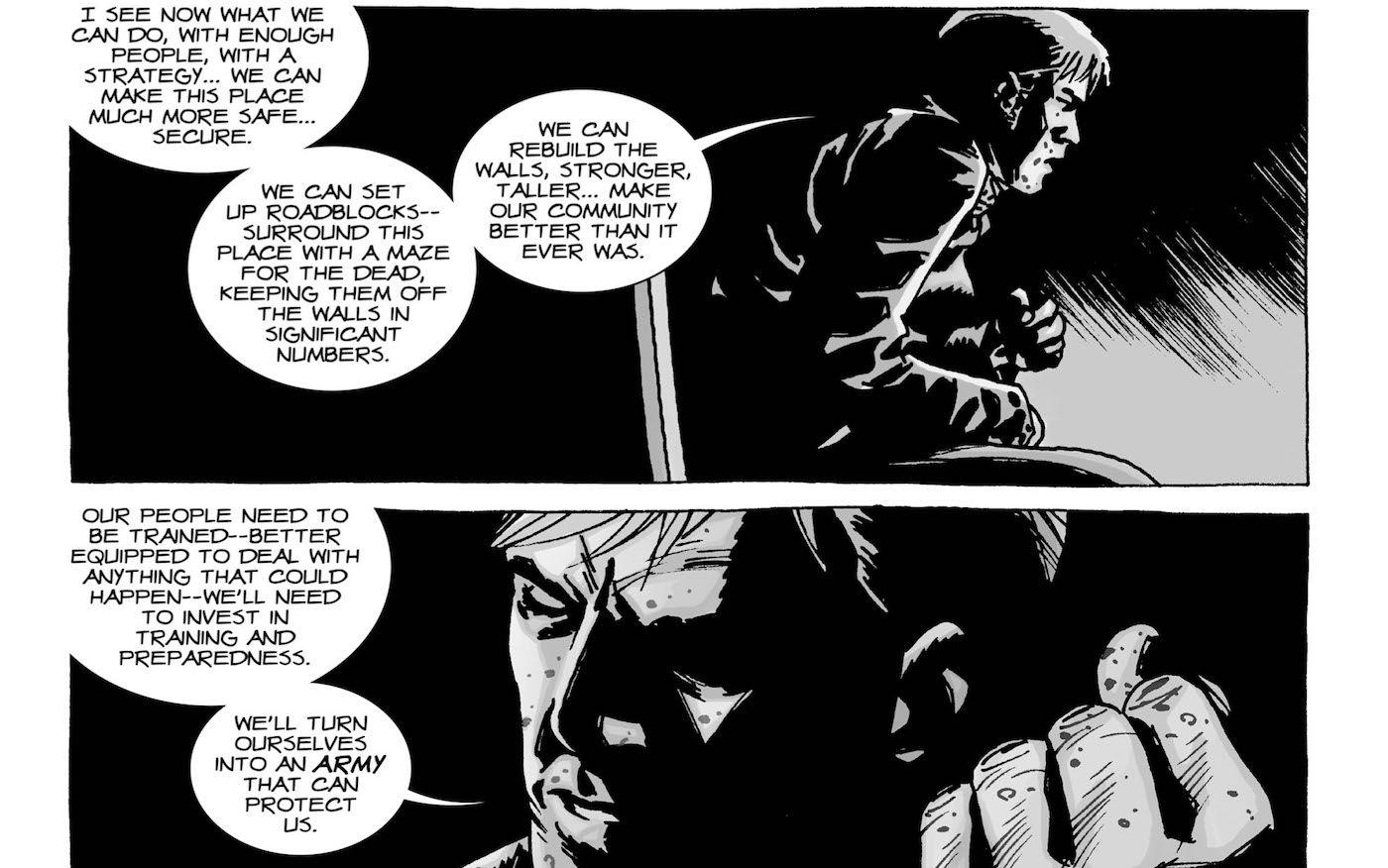WARNING: The following contains spoilers for The Walking Dead #193 by Robert Kirkman, Charlie Adlard, Rus Wooton and Cliff Rathburn.
Robert Kirkman and his creative team at Image Comics shocked fans with news that The Walking Dead #193 was going to be the last issue -- announced just a day before the issue hit stands. It wrapped over 16 years of comics started by Kirkman and artist Tony Moore, all before Charlie Adlard took up art duties.
While fans may be divided on how abruptly it ended, especially as they were hoping to see how the zombie apocalypse would fare without Rick Grimes, a vast portion gained comfort knowing that The Walking Dead ended on a somewhat happy note, with humanity rebuilding and Walkers a rare sight in the new world order. However, with Kirkman revealing he planned to conclude the book way earlier right after Rick encountered Alexandria, and factoring in the reasons he gave for thinking this way, it's clear that while it would have been a bitter ending, it certainly was the better one.
In the "Letter Hacks" section of the final issue, Kirkman admits The Walking Dead came close to ending with the "No Way Out" storyline, which lasted from Issues #80 to #84. There, Carl, Maggie, Glenn, Andrea and the others who survived villains like the Governor, defined the way towards a utopian society under Rick's leadership. However, as Kirkman mentions, seeing as Rick's camp was war-hardened, seeds laid down since Issues #71 and 72 would have seen the tension and apprehension rising, resulting in a coup. After all, Alexandria believed in peace, not war, even going so far as to ask Michonne to retire her signature katana. That's why Rick surprised everyone earlier on by indicating if Alexandria ever tried to evict them, seeing as the society was short on muscle, he'd engineer a takeover for his people.
It's pretty dark and out of character, but Kirkman felt it could have been the ideal catalyst for the story's conclusion. He wanted to use this as a springboard to show that Rick did take over, with a statue successfully erected to indicate he bought a measure of peace, even if by force. However, Kirkman envisioned a shocking twist where the pages would zoom out and reveal the statue as derelict and the town eventually abandoned, slowly overrun by Walkers. Obviously, mankind lost the battle, with Rick's camp eventually falling to the inevitable swell of zombies.
Kirkman admits this was how his younger, rash and more cynical mind wrote comics; but honestly, this finale actually would have fit that universe, with society crumbling and dying again as penance for being rebuilt on a foundation of greed, lust and power. It's intriguing to think of Rick living long enough to see himself become the villain, with his supporters and him getting their just due. Clearly, it matched the no-happy-ending-in-sight aesthetic Kirkman draped the book with (we're looking at you,Hershel being murdered by the Governor, not to mention Lori and baby Judith being killed by a gunshot blast), and acted as the perfect summation of humans colonizing what isn't theirs.
The big message would have been that humanity's biggest enemy wasn't the undead, it was itself. This actually feels more true to the fabric of the book that this quick shunt forward into a relative paradise in issue #193, where Michonne's a judge and Maggie is president of the new world. It would have been bleak and true to form to TWD, reminding us that just like Rick, we've all got a dark side. However, it's still something we can empathize with, as he just wanted to survive in a world where only the strong could have, and protect his family after losing so much. In fact, he'd have justified it as the best move for Alexandria, so ultimately, Kirkman would have probably had shaped him more as an anti-hero than a tyrant.
If Kirkman did follow that route, we wouldn't have gotten elements like Negan and his spate of murders, the Whisperers, or allies like the Kingdom and the Commonwealth. But at this point, let's be real, almost all societies in TWD have common threads: they want a degree of control through aggressive means and are all about self-preservation. With the original ending Kirkman was short-circuiting predictable drama, more cliches and tropes that were rinsed and recycled, not to mention he'd have closed this chapter in his career in jaw-dropping fashion. As for the audience, well, not showing how characters died in detail and leaving it up to our imaginations -- especially Rick and his core heroes -- that would have been a poetic tragedy, allowing us to create the scenarios for good people fading into nothingness and obscurity due to their own selfish behavior.
Like it or not, that direction feels like Kirkman was channeling his inner-Night of the Living Dead and The Mist -- both had very dystopian endings, but again, it's true to the heartbeat of the horror/monster genre. Most of all, Kirkman was on the way to charting something which reminded us that mankind's biggest simultaneous strength and flaw has always been its ability to unite. By holding this mirror up -- letting art reflect the real world we live in -- TWD would have made an profound and lasting statement, the same way Alan Moore and Dave Gibbons did with Watchmen's finale. All we can do now is wonder what could have been in a world that seemed like everyone, even while alive, was indeed "the walking dead."
The Walking Dead #193 is on sale now.



